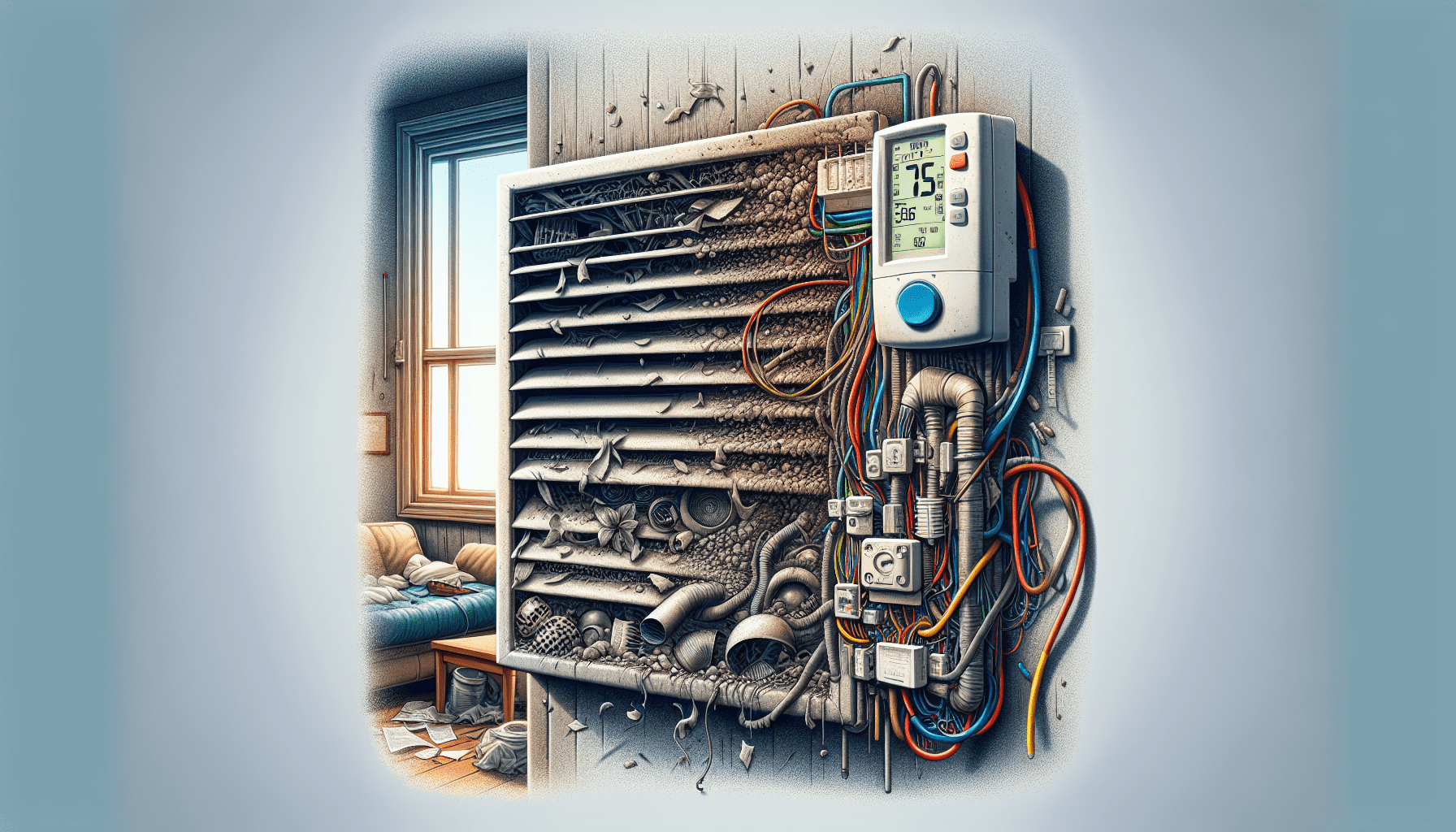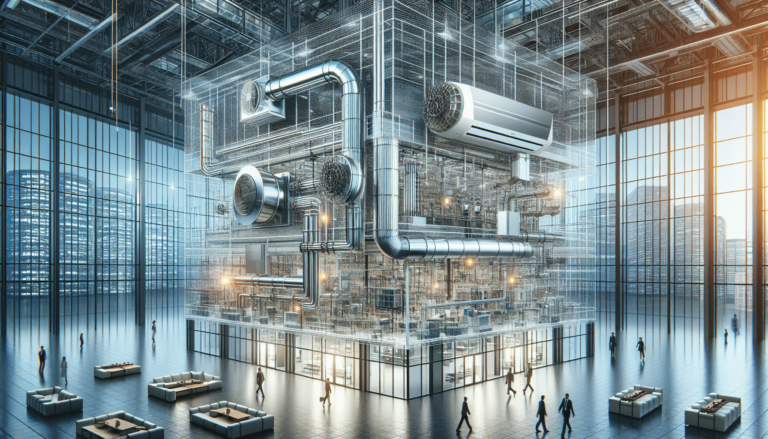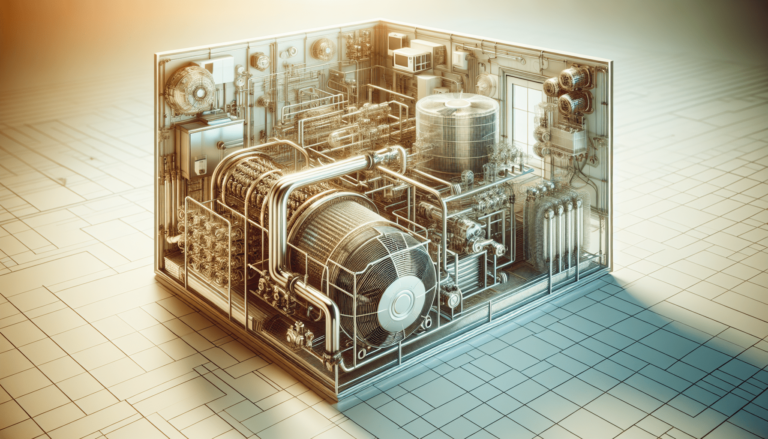

HVAC Services
Get Professional Repairs From The Area's Trusted HVAC Technicians. Ask About Our Services! We Offer Professional Heating & Cooling System Repairs And Guarantee Long-Lasting Results.
Got Question? Call us: (850) 678-2665Financing
Addressing The Biggest Energy Wasters In HVAC
Tired of sky-high energy bills? Discover the sneaky culprits in your HVAC system and learn simple fixes to save money and stay comfy all year round. Read on!

Have you ever wondered why your energy bills seem to skyrocket during the peak of summer or the dead of winter?
Let’s face it, heating and cooling your home can feel like a big budget buster, but it doesn’t have to be that way. Understanding the biggest energy wasters in HVAC systems can make all the difference. With some tweaks, and attention to detail, your HVAC system can work efficiently without guzzling so much energy.

Poor Maintenance: The Silent Wallet Drainer
Neglecting Regular Filter Changes
You wouldn’t drive your car for years without changing the oil, right? Similarly, your HVAC system needs its filters replaced regularly to run efficiently. Dirty filters force your system to work harder than necessary, leading to higher energy usage and decreased lifespan.
Filter Replacement Frequency:
| Filter Type | Replacement Frequency |
|---|---|
| Fiberglass | Every 1-2 Months |
| Pleated | Every 3 Months |
| HEPA | Every 6-12 Months |
Ignoring Seasonal Maintenance
Just like you wouldn’t skip your annual physical, your HVAC system shouldn’t miss its seasonal check-ups. Regular maintenance can identify problems before they escalate into expensive repairs or inefficiencies that inflate your energy bills.
Maintenance Checkpoints:
- Clean coils
- Check refrigerant levels
- Inspect ductwork
- Verify thermostat accuracy
Lack of Proper Insulation: The Unseen Energy Thief
Insufficient Duct Insulation
Ducts are like highways for the air your HVAC system produces. But if they’re Poorly insulated, much of that conditioned air is lost before reaching your living space. This results in higher energy consumption as your system works overtime to maintain the desired temperature.
Key Areas for Duct Insulation:
- Attics
- Basements
- Crawl spaces
Inadequate Home Insulation
Good insulation is like wrapping your home in a cozy blanket. Without it, you’re essentially trying to heat or cool the great outdoors. Insulating your walls, attic, and even floors can keep the conditioned air where it belongs—inside your home.
Outdated HVAC Systems: The Energy Guzzlers
Old Units
Even the best-maintained unit won’t last forever. Older models lack the energy efficiency of newer systems, and can cost you more in the long run due to higher energy consumption and frequent repairs.
Average Lifespan of HVAC Units:
| System Type | Lifespan |
|---|---|
| Central Air Conditioner | 12-15 Years |
| Furnace | 15-20 Years |
| Heat Pump | 10-15 Years |
Low SEER Ratings
The Seasonal Energy Efficiency Ratio (SEER) rating is a great way to gauge how efficient your air conditioning unit is. The higher the SEER rating, the less energy the unit consumes. Upgrading to a unit with a high SEER rating can lead to substantial savings over time.
SEER Ratings:
- Low Efficiency: SEER 13-15
- Medium Efficiency: SEER 16-18
- High Efficiency: SEER 19-21
Thermostat Issues: The Small Device with Big Impact
Incorrect Thermostat Placement
Where your thermostat is located can significantly affect its performance. If it’s placed in a spot that receives a lot of sunlight or is near heat-generating appliances, it can give false readings, causing your system to cycle unnecessarily.
Outdated Thermostats
Upgrading to a smart thermostat can save you money by learning your behavior and adjusting the temperature accordingly. These devices can be controlled remotely, ensuring you’re not wasting energy heating or cooling an empty home.

Leaky Ductwork: The Energy Sieve
Leaky ducts can lead to 20-30% energy losses, meaning a significant portion of your conditioned air never reaches its intended destination. Sealing and insulating your ductwork can dramatically improve your system’s efficiency.
Identifying Leaks
It’s not easy to spot duct leaks, but some signs include uneven temperature room-to-room, higher energy bills, and visible debris around duct connections.
Sealing Ducts
Professional duct sealing can be more thorough, but you can also use duct mastic and foil-backed tape to seal leaks yourself.
Incompatible System Size: The Energy Overkill
Oversized Systems
Bigger isn’t always better. An oversized HVAC unit will cycle on and off more frequently, wasting energy and causing wear and tear. An appropriately-sized system will run more efficiently and last longer.
Undersized Systems
Conversely, an undersized system will struggle to reach your desired temperature, running almost constantly and using more energy. A load calculation by a qualified HVAC technician can determine the best size for your home.
Improper Use of HVAC System: The Human Factor
Constantly Adjusting the Thermostat
It’s tempting to constantly adjust the thermostat when you’re feeling a little too hot or too cold, but this can cause your HVAC system to overwork. Utilizing a programmable thermostat allows you to set and forget, maintaining a consistent, efficient temperature.
Ignoring Zoning Systems
If your home has multiple levels or distinct areas with different heating and cooling needs, a zoning system can be a game-changer. Individual thermostats control separate areas, reducing the load on your HVAC system.
Running HVAC Non-stop
Sometimes, you just forget to turn off the HVAC when you leave the house. A simple solution is setting up a schedule on your programmable or smart thermostat to turn the system down during specific times, like when you are at work.
High Humidity Levels: The Hidden Culprit
Avoiding Dehumidifiers
High humidity levels can make your home feel warmer, causing you to crank up the air conditioning. By investing in a dehumidifier, you can manage humidity levels efficiently and reduce the load on your HVAC system.
Blocked Vents and Registers: The Efficiency Killers
Obstructed Airflow
Blocked vents force your HVAC system to work harder to circulate air, causing increased energy consumption. Ensure that furniture, curtains, and other objects are not blocking your vents.
Final Thoughts: Small Changes, Big Savings
Addressing the biggest energy wasters in your HVAC system doesn’t require a huge overhaul or massive investment. Often, it’s the little things—like replacing filters, sealing ducts, and using a programmable thermostat—that can make a significant impact on your energy bills.
For more information or professional guidance, you can reach out to Tempacure Heating and Air Conditioning at:
Tempacure Heating and Air Conditioning
325 Cedar Ave S
Suite B
Niceville, FL 32578
(850) 678-2665
Tempacure HVAC
A few adjustments could save you a boatload of money and make your home more comfortable. So next time you wonder why your energy bills are through the roof, take a look at your HVAC system—you might find that addressing these energy wasters is the key to lower bills and a happier home.







